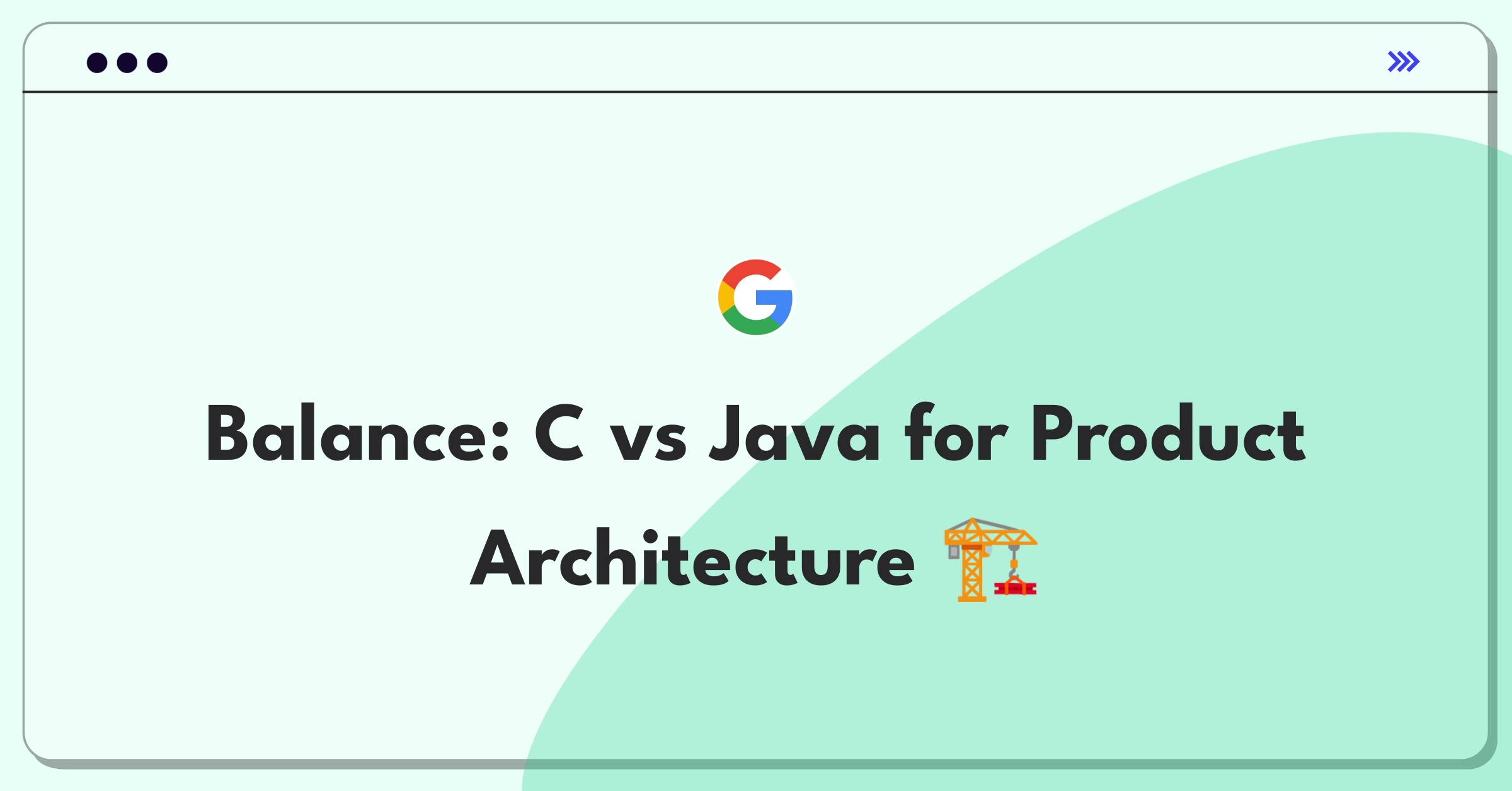Differentiating C and Java: A Technical Product Manager's Perspective
C and Java differ primarily in their execution models, memory management, platform dependency, and language features. C is a procedural, compiled language with manual memory management, while Java is object-oriented, uses a virtual machine, and has automatic garbage collection.
Introduction
As a Technical Product Manager, understanding the distinctions between programming languages like C and Java is crucial for making informed decisions about technology stacks and product architecture. This comparison is particularly relevant when considering factors such as performance requirements, development speed, and cross-platform compatibility. I'll provide a comprehensive analysis of the key differences between C and Java, focusing on their technical characteristics and implications for product development.
Tip
Aligning language choice with product requirements is essential for long-term success and scalability.
Step 1
Clarify the Technical Requirements (3-4 minutes)
Before diving into the comparison, I'd like to clarify a few points to ensure my analysis aligns with the specific context of your product or project:
Why it matters: Determines if we need to consider migration costs or if we have a clean slate. Expected answer: Evaluating for a new microservices architecture. Impact on approach: Would focus on scalability and containerization capabilities.
Why it matters: C's lower-level control might be necessary for extreme performance demands. Expected answer: Millisecond-level response times required for real-time data processing. Impact on approach: Would lean towards C for performance-critical components.
Why it matters: Affects ramp-up time and potential training needs. Expected answer: Stronger Java expertise in the current team. Impact on approach: Would consider the learning curve for C if chosen.
Why it matters: Java's built-in security features might be advantageous in certain regulated environments. Expected answer: Standard enterprise-level security needs. Impact on approach: Would emphasize Java's security model in the comparison.
Tip
After clarifying these points, I'll proceed with the comparison based on the assumption that we're evaluating both languages for a new, performance-sensitive microservices architecture with a team more experienced in Java.
Subscribe to access the full answer
Monthly Plan
The perfect plan for PMs who are in the final leg of their interview preparation
$99 /month
- Access to 8,000+ PM Questions
- 10 AI resume reviews credits
- Access to company guides
- Basic email support
- Access to community Q&A
Yearly Plan
The ultimate plan for aspiring PMs, SPMs and those preparing for big-tech
$99 $33 /month
- Everything in monthly plan
- Priority queue for AI resume review
- Monthly/Weekly newsletters
- Access to premium features
- Priority response to requested question


.png)